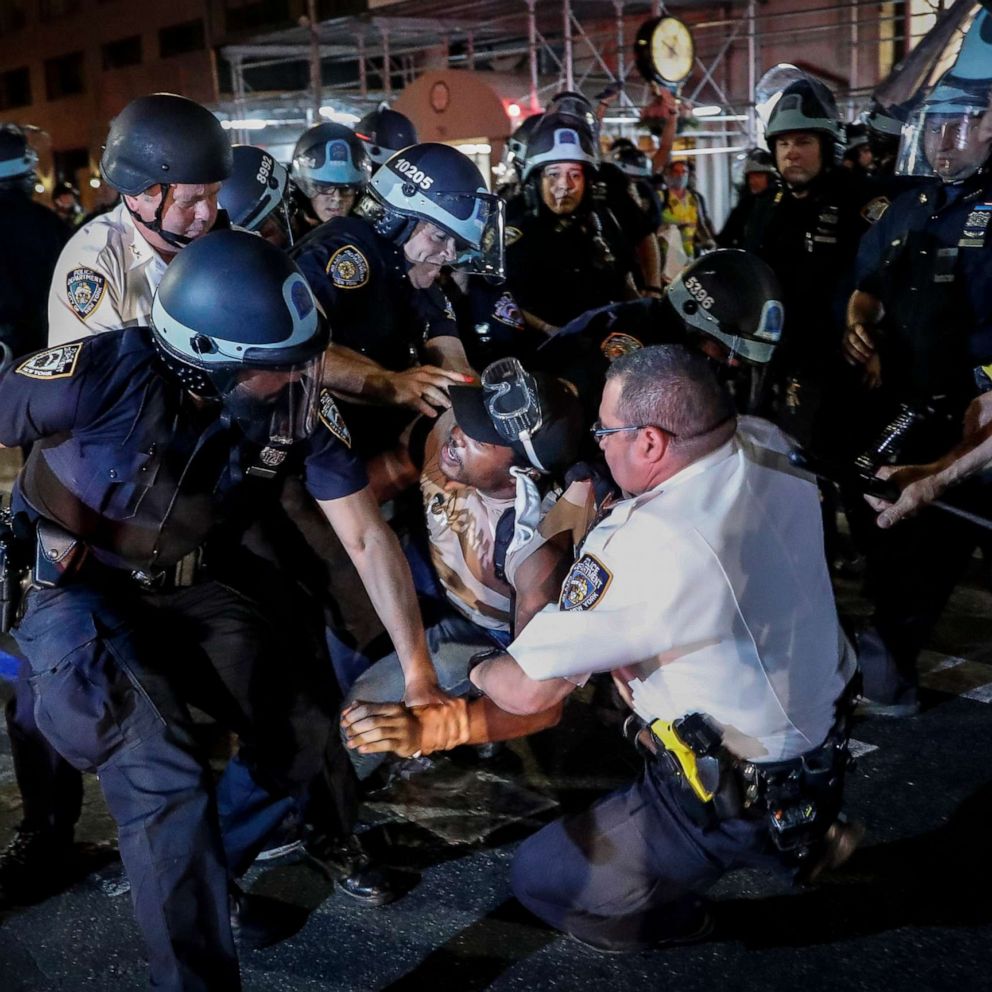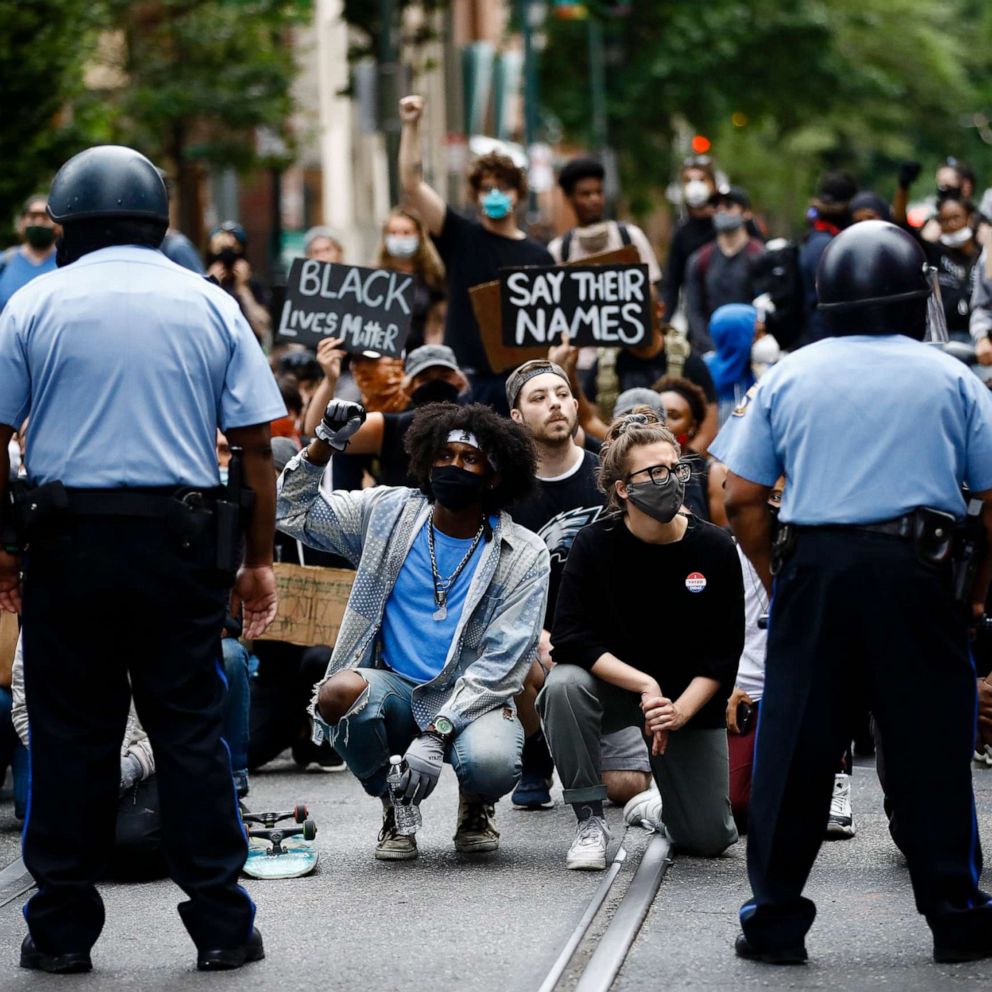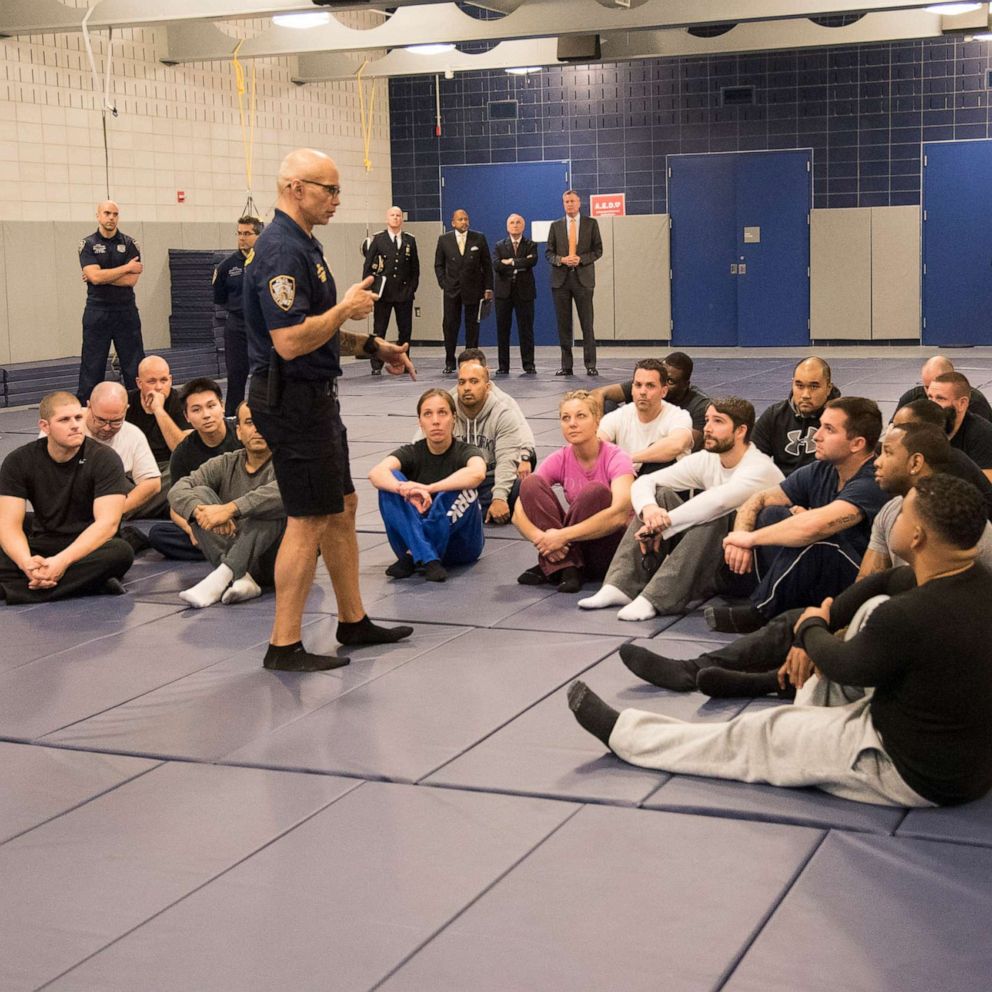'Hire more women' has been touted as a quick fix to police brutality since Rodney King. Here's why empty calls for equality fail.
Gender discrimination laws don't stop women from being tokenized and harassed.
Natalie Todak had planned to follow her father, a federal agent, into a career in law enforcement. But when Todak turned 21 and applied to be a police officer in the Washington, D.C., area, she was taken aback when a male recruiter turned her background assessment into a discussion of her love life.
"I had someone lecture me that I should think hard about becoming a police officer and that I would never have a husband," Todak, now in her 30s, recalled. "No man wants to wait for his wife when he gets back from work," she remembered him saying. "Divorce rates are high," the recruiter added. "I just want you to be aware."
The conversation had a lasting effect. Todak interpreted the husband comment as a warning that the organization "treats women like garbage, so you should be aware of that," she said. Todak was so turned off that she declined the police officer job and she chose to go to graduate school instead.
As of 2016, only 12% of full-time sworn officers in local police departments were women, according to the Bureau of Justice Statistics. In small jurisdictions, that gender disparity is even more stark. Areas with 25,000 or fewer residents reported that 8% of their officers were women, compared to 16% in areas with 250,000 or more residents.
Only 10% of supervisors and 3% of local police chiefs were women.
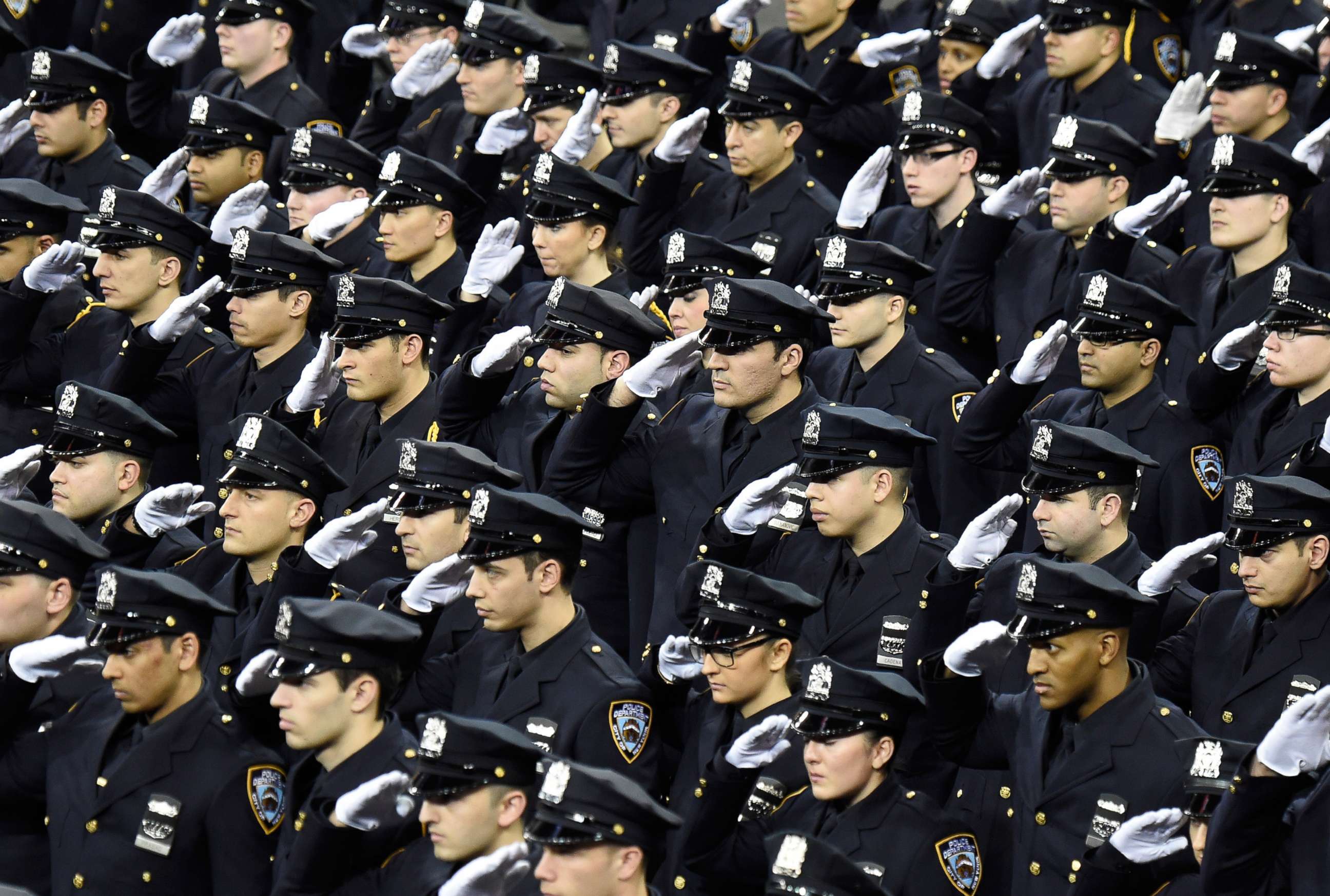
In response to calls for police reform, some have suggested that hiring more women is a solution to police violence. Indeed, some research has shown that female officers are less likely to use force and more likely to display empathy than male officers. Other research has come to the opposite conclusion, finding no significant gender differences between male and female officers' use of force or coercion.
From a scientific standpoint, it's a difficult subject to study. Use of force incidents are both subjective and rare, relatively speaking. Having so few female police officers in the force further complicates that already challenging task.
Inconclusive research hasn't stopped the media from pointing to the closing the gender gap as a quick-fix solution to police brutality. "Want to reform the police? Hire more women," CNN suggested last month. It's far from a novel concept. The year after Rodney King was beaten by Los Angeles police officers, Time magazine published its own call to close the gender gap. "Are women better cops?" Time asked.
"We have so much to gain by achieving gender balance, we'd be nuts not to do it," then-Los Angeles City Councilman Zev Yaroslavsky told the magazine. Spurred by the Rodney King incident, in 1994, the Los Angeles City Council set a goal of increasing the proportion of women police officer on the LAPD force from 13% to 43%.
Today, more than 25 years later, women still only make up 18% of sworn officers in the LAPD.
The question of whether women are inherently gentler police officers than men may be besides the point. Calls for equal representation in policing are fruitless without dramatic policing culture and policy changes, experts say. The same culture of masculinity that fuels police violence discourages women from becoming police officers, from staying in policing after having children and from rising to leadership positions within the force.
Being hired for the expressed purpose of shaking things up may also hurt female recruits, according to Cara Rabe-Hemp, a professor at Illinois State University who researches gender and policing. "One of the challenges for women is that women are always associated with police reform," she said. "That's an unfair mandate. It sets up a situation where those coming in are going to be perceived differently than everyday recruits," Rabe-Hemp added.
"Policing is not a superhuman job," said Gene Paoline, a criminal justice professor at the University of Central Florida who interviews police officers about gender as part of his field research. "It's a public relations job that has flashes of excitement."
"You want your police agency to look like your community," Paoline added.
Todak, now an associate professor of criminal justice at University of Alabama at Birmingham, seemed to agree. "Clearly the same exact strategies for addressing all the policing problems that we see in the news every day are not working," Todak noted.
"When we diversify, especially up the ranks, the number one benefit is people bringing in new ideas and then testing them," she said.
The physical fitness test fallacy
Women's challenges in law enforcement begin long before they're allowed on the force.
"We have recruitment practices in policing which overemphasize upper body strength," said Rabe-Hemp. "It just disadvantages women," she added.
"There's no empirical research that suggests being able to deadlift weight is linked to success in policing."
While women made up about 20% of the police academy in Newark, New Jersey, for example, they were being dismissed from training at rates between 65% and 80%, according to Ivonne Roman, a retired police chief from the city who now works at the Center for Policing Equity, which researches disparities in policing.
It wasn't always that way. Women and men used to fail the physical fitness tests in New Jersey at a similar rate, with between 2% and 4% of women failing and 1% of men failing. A joint investigation by USA Today and the Asbury Park Press last year revealed when the New Jersey's Police Training Commission changed the strength requirement in 2017, failure rates among female recruits skyrocketed, with women failing up to 13 times as often as men did.
Most women were failing the physical fitness test that was given within the first two weeks of training. Since the United States has no nationalized police agencies, every department is free to design its own physical fitness test.
Roman compared the fitness tests in the police academy to boot camp in the military, where army recruits are assigned mentors to get them up to speed if they're not adequately physically fit.
"It's very rare in the military that someone is kicked out for physical fitness," she said. "In the police department, it's the reverse."
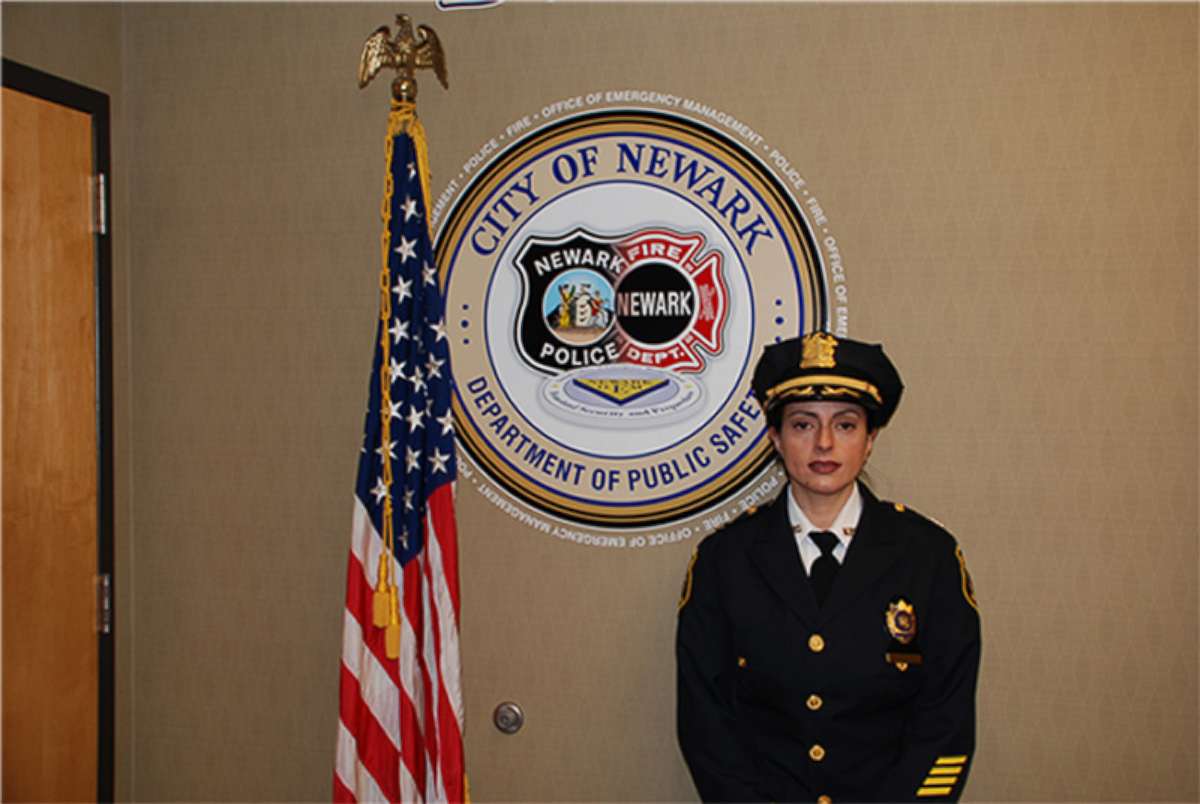
Roman, who helps train women to pass the academy, said that women, including those who pass, describe being scrutinized and hazed at the academy. They described being ordered to go all the way down to the ground while performing pushups, or disqualified for readjusting their hands.
"It's beyond bizarre to me," she said of the emphasis on upper-body strength testing. "It's not based on science."
Roman said a general fitness exam to determine if you are healthy enough, including heart health, should be conducted before entry into the academy and then a fitness test done at the end, like the military does, in order to work on weak points and keep as many recruits as possible.
"If the army can do this, why can't policing?" Roman asked.
The glass ceiling
Women who make it through the academy are rewarded with the same structural barriers that their counterparts in corporate America face: a family-unfriendly workplace and the glass ceiling.
"Because it has been male-dominated, the culture of policing has not always been women-friendly," explained Kym Craven, executive director of the National Association of Women Law Enforcement Executives.
Policing is still a shift-work profession, which poses a problem for working mothers who need child care. For new mothers, pumping milk on the job is an additional obstacle. Police gear, like bulletproof vests, aren't conducive to breastfeeding.
"It's still difficult for women to breastfeed," said Sylvia Moir, chief of police in Tempe, Arizona, who added lactation rooms in her police department station houses in order to make work easier for mothers. The spaces also double as meditation rooms.
"We added the rooms to each of our stations to give our female officers a respectful, private, sterile, and peaceful place to collect and store their breast milk during their shifts," she said. "They want to return to service and these rooms, coupled with our supportive culture, aids female officers when they resume full duty."
While lactation rooms are now common in much of corporate America, police agencies have been slow to make similar accommodations for female officers. From an early age, women don't see policing as a welcoming profession, Rabe-Hemp noted.
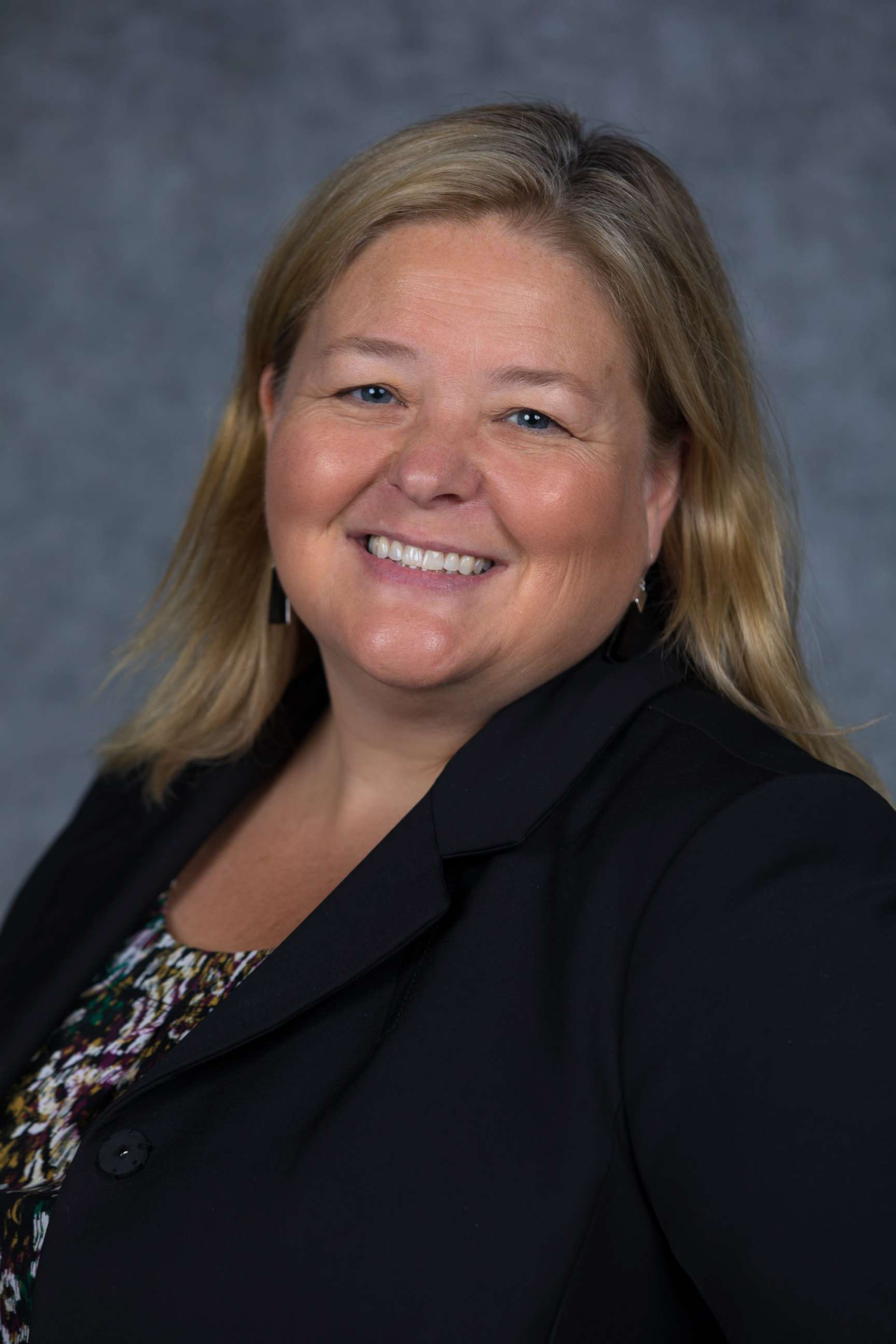
"Women in college already have concerns about being in policing and they haven't stepped through the door yet," she said.
There are some hints about how change could be effected. Additional childcare resources that local governments have offered first responders during the coronavirus pandemic could serve as a blueprint for a more family-friendly police force, Craven noted. "The model should be replicated, to make it so that people can raise their children and still be a police officer," Craven said.
Moir, Craven and Roman, who are among the few women to have risen to the top ranks of law enforcement, described a system in which female officers have few role models who look like them, and in which some police chiefs groom younger officers who look like them, which keeps the top ranks male.
Then there's the circular problem of not having women to promote in the first place.
"If you aren't getting them through the lower ranks, you don't have enough to filter up," Roman said.
Strikingly, the gender gap in policing has not improved over the past two decades.
Between 1971 and 1980, the gap significantly narrowed and the number of sworn female officers in more than tripled in the United States. By 2000, the number of female officer doubled again.
Then progress stalled. Since 2000, the proportion of sworn female police officers plateaued, remaining at roughly 12%, despite women accounting for half of the U.S. population and 58% of the civilian labor force.
During that same 20-year period, police agencies came under intense scrutiny following the deaths Black Americans, most recently, George Floyd, at the hands of police officers.
Normalized harassment and the cult of masculinity
In 2018, nearly 100 law enforcement officers and researchers gathered in Washington, D.C., for a research summit on women in policing.
According to a special report by the National Institute of Justice, which hosted the event, "law enforcement attendees spoke at length about the barriers they had personally faced over the course of their careers, such as the 'boys club,' adverse or hostile environments, explicit and subtle harassment, sexism, skewed physical fitness assessments, double standards, and a lack of support and opportunity."
Some in attendance agreed that harassment in policing and sexism were so normalized that only the most egregious cases are ever reported.
One officer said that while she didn't think of herself as ever being harassed on the job, "a lot of the things I experience would be considered harassment in another field."
A separate report released by the Justice Department in 2018 found that "a significant number of women across agencies and position types reported in our survey, interviews, and focus groups that they had experienced gender discrimination and differing treatment in some form including in promotions and other workplace opportunities."
Focus group participants "who described their experiences with discrimination and sexual harassment also told us how these experiences negatively affected them personally, including physical illness, isolation, and fearfulness at work," the report detailed.
Rabe-Hemp described the Justice Department report as "scathing."
Roman described a female detective whose supervisor refused to give her credit for solving a string of homicides in the next agency over. "He gave you a lot of information because you have a big ass," the supervisor told her in the presence of another officer.
"She was crying," Roman remembered. "He humiliated her and diminished her in front of those people."
Male officers who aren't outwardly hostile to women can reinforce women's minority status by subtly undermining their female coworkers, experts say. Male officers might be especially protective of their female coworkers and treating them like a girlfriend or sister, rather than an equal in the field.
To deal with their minority status, some female officers enlist coping strategies, such as excessive vulgarity, to get their male coworkers off their backs, Paoline said.
If a male officer says something to a woman to rattle her, the female officer in some cases, "comes back with something so vulgar" it makes me "blush," Paoline said. One woman later confessed to Paoline that she was putting on an act.
"I don't even really talk like that," she told him. "I just do at work and it squashes everything."
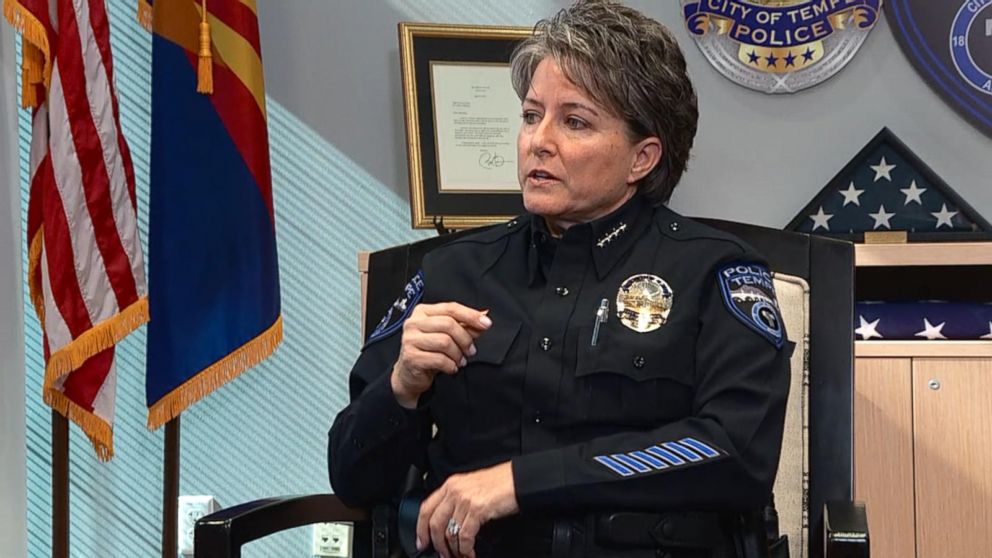
Maintaining a "tough guy" facade might deflect the most overt forms of harassment, but it can also take a toll. "There's a certain type of hoop that women have to jump through that men do not have to go through," Paoline said.
"I think that if you are a woman who can play the game of policing and act like the guys and fit in, you're accepted," Todak added. "The words I usually hear are 'I fit in because I don't complain.'"
Male officers confirmed this phenomenon to Todak. When she asked men whether women are respected in their agency, a common response is that "hardworking, competent, experienced women are respected," she explained. "Women who don't cause problems are respected. I get that almost every time. They always caveat it."
Of the more than 100 female police officers who Todak has interviewed, almost every single officer said their biggest challenges were within their agencies.
"Most of the things they don't want to handle are interactions with their male colleagues," she added, describing men who don't trust women to be good policing partners or viewing women as entertainment rather than professional peers.
"Women have cried to me about their careers because they wish it was different," Todak said.
"I've seen these things first-hand."
